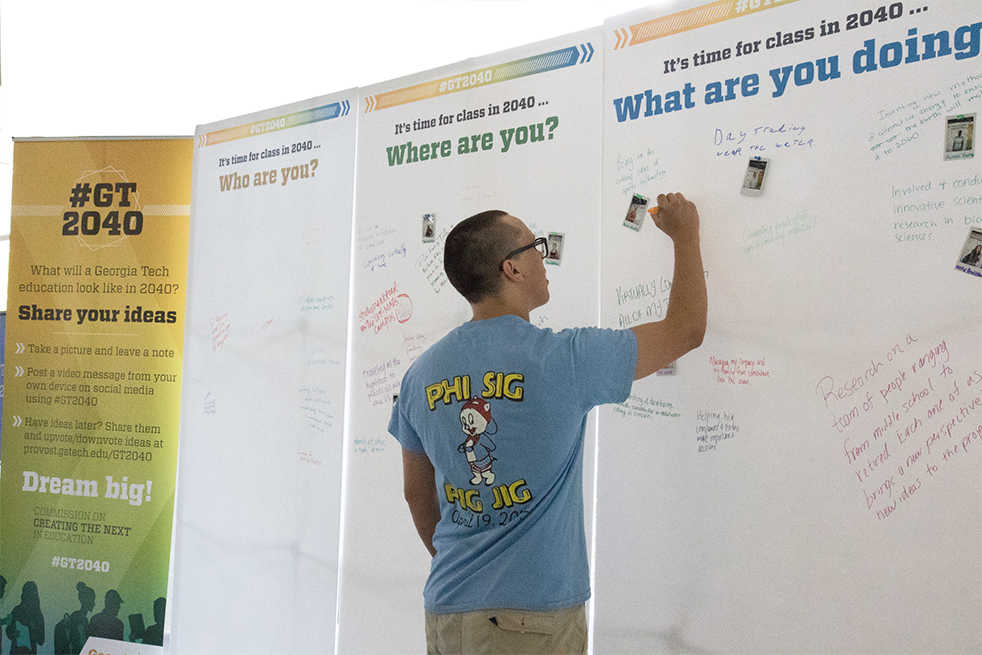Envisioning — let alone predicting — the future can be enormously challenging, but the #GT2040 initiative encourages students and faculty to do
just that.
Through an interactive installation in the Clough Commons and an online poll, the project attempts to get a conversation started about what the community would like to see in the
coming years.
GT2040 is part of the ideation process of the Commission on Creating the Next in Education, which is spearheaded by Dr. Rafael Bras, provost and executive vice president for academic affairs.
The Commission has been working hard to evaluate trends in higher education, engineering and technology in order to picture where Tech might be in the
coming decades.
A primary goal of the project is to introduce this Commission to students and faculty on campus who might have been unaware of it.
More importantly, says Dr. Bras, it will generate ideas for how Georgia Tech might innovate the education of the future.
“The work of the commission isn’t about telling the community what’s next,” Bras said. “But instead listening to the community, having robust discussions, and building those ideas from
those insights.”
The physical installation will remain in the Clough Commons until April 21, allowing students to add their thoughts about what Tech will look like to a large poster with a myriad of other bright ideas.
An online poll that will remain live throughout the summer also prompts individuals to imagine that it is the first day of class in the year 2040, and asks three questions: who are you, where are you and what are you doing?
The aim of the Commission is to make Tech a place that is prepared to meet the demands of the future and remain an institution of lifelong learning; in short, they are preparing for “what’s next.”
“Maybe you as an alum will be mid-career in 2040 and want to pivot to something new. Maybe you have been approached for a new opportunity by your employer and need additional education, credential-ing, or training. Maybe you will be ready to send a child of your own to Georgia Tech,” Bras said. “The future holds limitless possibilities.”
Information discovered during the Commission’s investigation as well as the ideas generated through #GT2040 has “revealed trends that have demographic and socioeconomic implications, changes in learner and employer demands, and innovations in technology that will impact how education is delivered,” according to Bras.
The ideas generated will contribute to recommendations for pilots and programs that the Commission will pitch.
These ideas, combined with evaluation of current Institute practices, and investigating the work of other universities will advise the Commission on how to push Tech towards being a leader in research institutions.
So far, #GT2040 has garnered significant attention, and Dr. Bras says that the commission has been inspired by the ideas people have contributed.
“The ideas have been varied, but have had some common threads, including experiential and applications-based learning, collaborative educational experiences, blended and personalized learning, virtual experiences and building on artificial intelligence connections in the classroom, being connected to Georgia Tech from anywhere around the globe, and increasing diversity among the student body,” he said.
People who have bright ideas about what Tech’s future may look like can also contribute to a video time capsule through the project by taking a video of their thoughts, posting it to social media platforms and tagging it with #GT2040.
